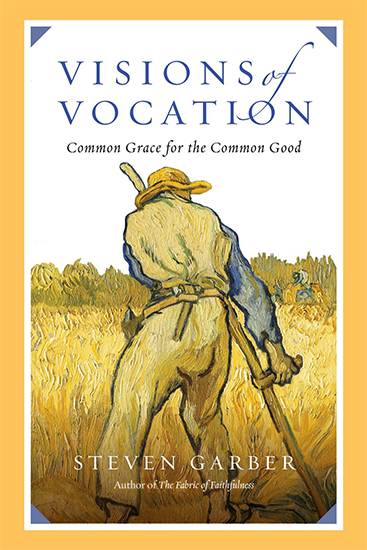Today we will review chapters 6-8 of “Visions of Vocation” by Steve Garber for the Blood:Water Book Club.
Summary:
Each of us is impacting the world through our vocation. Our wide range of careers and backgrounds points to there not being one way to vocation as implication, but many road and paths, each weaving a unique story that impacts the world. For those who see themselves as implicated, they are ordinary people in ordinary places, each with a story of a life lived as a vocation.
But as Steve has explored, how do we avoid the cynicism that can come along with knowing? Knowing more, we protect ourselves. Most of the time we do not want to be responsible for what we know – simply, and sadly, it hurts too much. We do not want knowing to necessarily mean caring.
Can we form the habits of the heart that allow us to know the world and still love it? Or are we fated to be cynics and stoics? The vision of proximate justice offers the possibility that we can find a way to be honest about the world, and ourselves, without giving in to despair. It allows us to confront the question, can we know the world and still love it?
Themes:
Ordinary people in ordinary places; Those who know the most mourn the deepest; Perseverance; Proximate justice and happiness.
Powerful Lines:
- “Life lived locally, not globally.” (137)
- “Most of life is understood only in retrospect.” (149)
- “’Vocation is integral, not incidental, to the missio Dei.’ Most of the time, all over the world, the church teaches otherwise…It is always a compartmentalizing of faith from life, of worship from work, and it has tragic consequences for the church and the world.” (155)
- “Time and energy, ability and desire–together they are the contours of our lives, and when all is said and done, we have to sleep at night, making peace with who we are and how we have lived.” (168)
- “They who know the most must mourn the deepest.” (171)
- “To see ourselves as responsible, for loves sake, is both hard work and good work–and it cannot be done alone.” (189)
- “Finding honest happiness in living within the contour of our choice.” (196)
- “Proximate happiness as the worth aim of a good marriage.” (204)
- “We do not fall in love and then get married. We get married and then learn what love requires.” (205)
Questions to Ponder:
- How do you view your vocation as implication in this world? Do you compartmentalize your faith and vocation?
- Have recent world events caused despair? We are faced every day with the worst of our world. Where do you find hope that can take you into the future?
- Do you protect yourself from mourning by not knowing?
- How do you view your responsibility to those around you? Are you responsible for your neighbor?
Challenge:
The challenge for us daily is the theme of the book – knowing what you know, what are you going to do? My challenge to you is that you would not view your job, the world, or your community as something in which your role has no implication for the future. I challenge you to form relationships to those around you today, shaping your sense of responsibility to them. What our world needs now is not more who choose to be connected virtually, yet disconnected relationally. Step into today with the obedience that allows you to know the world but still love it.

